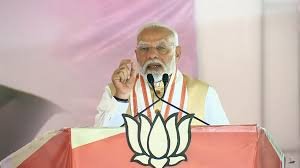New Delhi- In a constitutional face-off with sweeping implications for Centre–State relations, the Supreme Court will soon take up President Droupadi Murmu’s reference challenging its landmark ruling that set time limits for Governors to act on state bills. The hearings, led by a five-judge Constitution Bench headed by Chief Justice D.Y. Chandrachud, will begin on August 19 and stretch into mid-September.
The Presidential reference puts forward 14 pivotal constitutional questions, demanding clarity on the roles, responsibilities, and boundaries of the President and Governors in India’s federal legislative framework — especially in response to the Supreme Court’s earlier assertion that Governors cannot indefinitely delay action on bills passed by state legislatures.
The southern states of Kerala and Tamil Nadu have strongly objected to the maintainability of the reference. Represented by senior advocate K.K. Venugopal, Kerala has urged the court to dismiss the plea outright, arguing that the original judgment was sound and does not merit reconsideration.
The Supreme Court has directed all stakeholders to file their written submissions by August 12. The court will first hear objections from Kerala and Tamil Nadu, followed by arguments from the Attorney General and the Union Government.
This case is being closely watched across the country, as it could significantly alter the balance of power between the states and constitutional authorities like the Governor and the President. Legal experts say the outcome may set a long-term precedent for legislative accountability and executive restraint.
Joining Chief Justice Chandrachud on the Constitution Bench are Justices Surya Kant, Vikram Nath, P.S. Narasimha, and A.S. Oka — a panel poised to decide on one of the most consequential constitutional questions of recent times.




